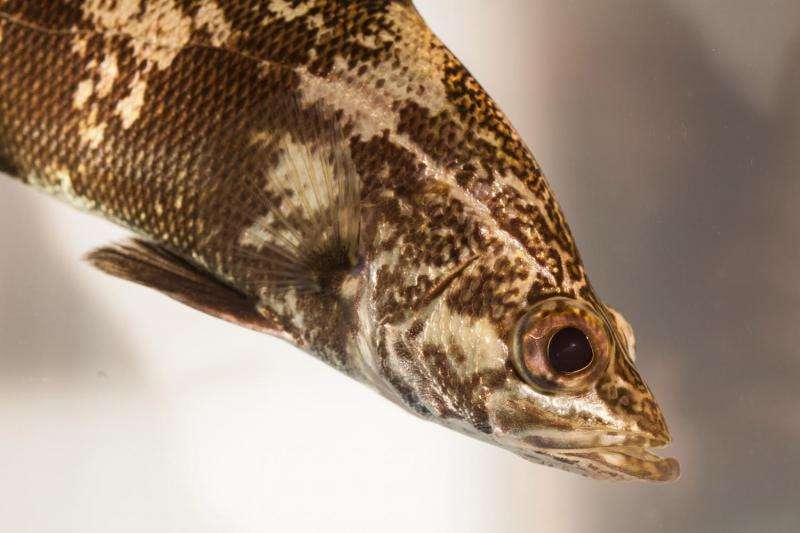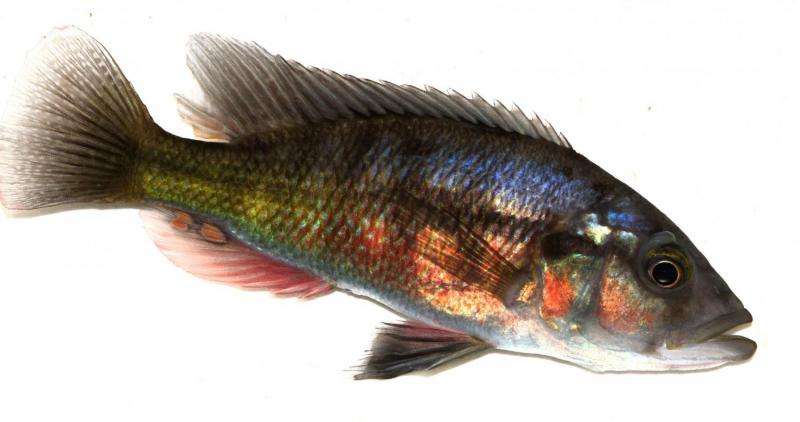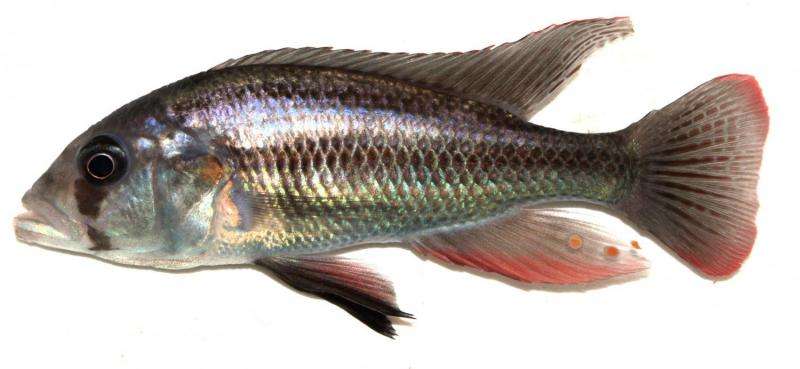November 27, 2015 report
Study shows evolution does not always mean more diversification

(Phys.org)—A small team of researchers with members from the U.S. and Switzerland has found an example of a fish that did not always benefit in the end from an evolutionary change. In their paper published in the journal Science, the team describes their study of cichlid fish species in Lake Victoria and other places, and the changes that led to their downfall in one ecosystem. Geerat Vermeij with the University of California offers a Perspectives piece on the work done by the group in the same journal issue.
The researchers were studying pharyngognathy in spiny fish—where the jaw changes over time to allow bones in the throat to grind down hard shells for digestion—to discover whether such an evolutionary adaption always works out, because the downside of it is a smaller gape, which means feasting on smaller fish. They noted that most such species live in shallow marine environments alongside other species that do not have the grinding capability. The exception was cichlids, which live in tropical freshwater places, such as lakes.
Overall, the researchers found that pharyngognathy generally led to fish that evolved into niches that favored hard-shelled fish faster than did other fish, and that may have contributed to the decline of such fish species in Lake Victoria. The Nile perch, a non-pharyngognathous fish was introduced into the lake back in the 1950s and since that time cichlid numbers have been dropping dramatically. Initially it was assumed that the decline was due to the perch eating or killing the various cichlid species, but now, the researchers have shown that it was most likely due to them being out-competed—they compared the feeding performance of Nile perch against cichlids and discovered that the gape of the perch was double that of the cichlids, and that the cichlids also took much longer to digest prey. Taken together, the physical differences have clearly put the cichlids at a serious disadvantage, allowing the perch to thrive while the cichlids have been essentially starving to death. Thus, the specialization that came about due to the evolutionary adaption meant to allow them to eat a broader range of fish, in the end led to far less diversification in at least one closed ecosystem.
-

Harpagochromis, "orange rock hunter," is a beautiful predatory cichlid now found in low numbers in Lake Victoria, but maintained in captivity thanks to conservation-minded cichlid hobbyists. Credit: Matthew McGee -

Harpagochromis, "two stripe white lip," is an undescribed species of Victorian predator cichlid now extinct in the wild. Thanks to a partnership with the Lake Victoria Species Survival Program, we were able to use this species in our study. Credit: Matthew McGee -

Nile perch are known to prey on cichlids, but they also outcompeted fish-eating cichlids. Credit: Matthew McGee
More information: M. D. McGee et al. A pharyngeal jaw evolutionary innovation facilitated extinction in Lake Victoria cichlids, Science (2015). DOI: 10.1126/science.aab0800
ABSTRACT
Evolutionary innovations, traits that give species access to previously unoccupied niches, may promote speciation and adaptive radiation. Here, we show that such innovations can also result in competitive inferiority and extinction. We present evidence that the modified pharyngeal jaws of cichlid fishes and several marine fish lineages, a classic example of evolutionary innovation, are not universally beneficial. A large-scale analysis of dietary evolution across marine fish lineages reveals that the innovation compromises access to energy-rich predator niches. We show that this competitive inferiority shaped the adaptive radiation of cichlids in Lake Tanganyika and played a pivotal and previously unrecognized role in the mass extinction of cichlid fishes in Lake Victoria after Nile perch invasion.
Journal information: Science
© 2015 Phys.org





















